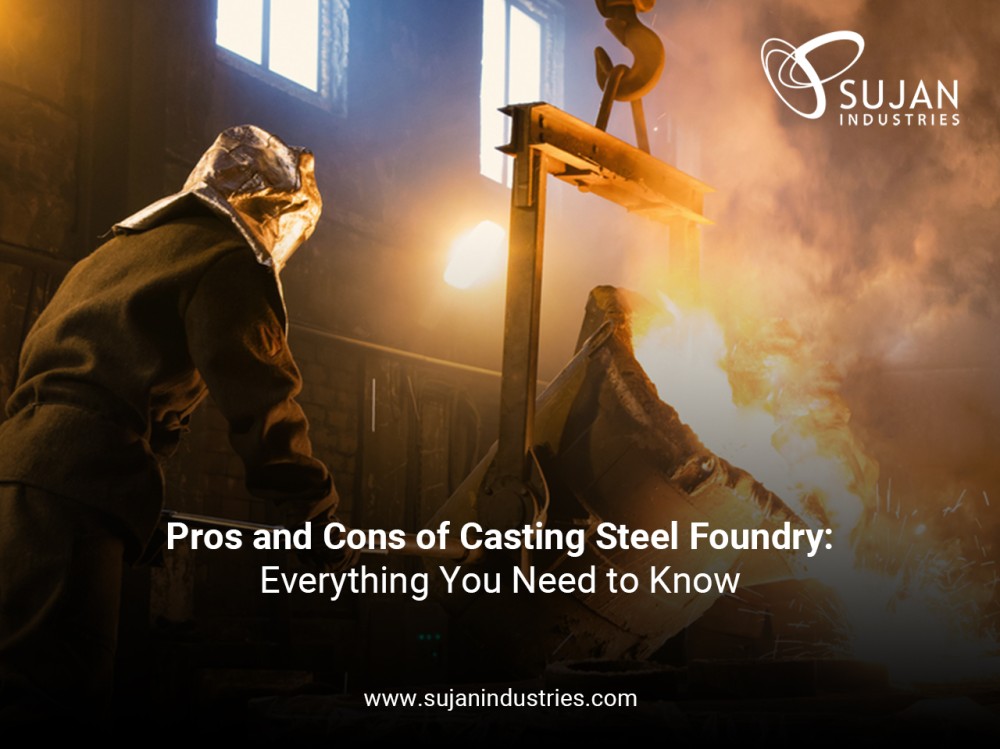
When it comes to designability and high tensile strength, cast steel is one of the best products that come out of a casting foundry. From railroad and construction to mining, drilling, and transportation industry, cast steel finds its applications in many heavy industries, and becomes an indispensable raw material in an industry operation.
If you’re not aware of what cast steel is, and its many advantages in the sectors that rely on steel foundry, here’s a comprehensive blog that outlines all you need to know about them.
Cast steel is a kind of metal forged by heating iron in a crucible container. This revolutionary process was discovered by Benjamin Huntsman, way back in 1751. Due to the efficiency of the process, it allowed casters to achieve a more uniform composition of steel, with far fewer quantities of impurities when compared to other manufacturing processes.
Since it’s forged in a crucible in a casting foundry, cast steel is often called crucible steel.
Cast steel was the first metal composition that enabled the addition of alloys to iron. Before the inception of this method, manufacturers were unable to reach temperatures hot enough to melt steel. However, by heating blister steel in clay crucibles placed in direct contact with the fire, Huntsman allowed for temperatures north of 1600-degree-celsius.
Looking for quality cast steel parts? Sujan Industries – one of the leading suppliers of aftermarket parts in India – can supply you with best-in-class
Also Read: Sand Casting : Complete Process, Advantages & Industry Applications
The foremost benefit of cast steel is its flexibility. Designers, when working with steel in a casting foundry, have complete freedom to pursue any design choice. This allows them to accommodate complex shapes and cross-section parts.
Moreover, in terms of flexibility, cast steel also offers strong variability in metallurgical manufacturing. You can play with a variety of chemical compositions, which allows you to cater to the changing needs of diverse projects. As a result, this provides casters with various choices of heat treatment in the broader context of the properties of the cast steel and mechanical performance. It also offers excellent weldability and workability.
Besides, you can also integrate cast steel to improve the general steel casting’s structural strength, as it’s an isotropic material. Consequently, this can enhance the project’s reliability. In combination with the designability and weight, the merits of the price, economy, and short delivery time offer cast steel a slight competitive edge over other casting types.
Furthermore, steel castings are available in a wide range of weights – lightweight ones fall in the range of a few grams, whereas large castings can weigh up to a few, dozen, or hundreds of tons.
As for the applications, the mechanical properties of cast steel are better compared to other types of alloys, due to which they can be used in pressure vessel castings as they can withstand high tensile stress and dynamic load.
For the most reliable and durable castings, Sujan Industries, one of the top rubber products manufacturers in India, can be your best bet. From top-of-the-line manufacturing processes and leading-edge equipment to airtight quality control and on-time delivery, Sujan Industries leaves no box unchecked when it comes to customer satisfaction.
However, when compared to other types, cast steel has bad shake-suction, mobility, and wear resistance. Also, the performance of cast steel is not appreciably better than cast iron. On top of that, cast steel has a comparatively higher cost than cast iron.
As the leading steel casting foundry, Sujan Industries manufactures and delivers the best quality steel casting products to the Indian Railway and Defense sector, with plans to expand their business horizons to international markets as well. Apart from ready-to-use products, we also produce customized casting products according to your bespoke requirements.
So, if you’re searching for premium quality steel castings, get in touch with us today!